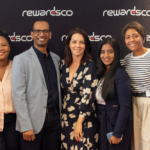When it comes to mentorship, we can learn valuable lessons from the most unexpected places – including the rugby field.
Rassie Erasmus and the Springboks have shown South Africans how individuals with different backgrounds and circumstances can come together and be a winning team. In the same way, mentorship in the workplace can flourish when we, as leaders, understand and embrace the diverse journeys and uniqueness of our people.
The first step is to recognise one indisputable fact – staff may share the same office space, but the roads they’ve each travelled to get there are all vastly different.
When you’re mentoring someone who doesn’t have the foundation that puts them on equal footing with their teammates, they start their career on the back foot. As mentors, the onus is on us to help level the playing field for our people. But where do we start when those we’re mentoring still need to identify their barriers?
I speak from experience. When I qualified and was appointed as a commercial mergers and acquisitions candidate attorney at one of the top five law firms in South Africa, my manager was shocked to discover I had never seen a share certificate before.
How could I have? I had come from a poor background where share certificates were not dinner table topics.
Thankfully, my mentor at the time recognised that this did not reflect my capabilities as an attorney. Instead, he invested time in me and allowed me to stand confidently alongside my peers. My honesty as the mentee and his openness and gentleness as a mentor turned what could have been a faux pas into a learning moment without minimising my upbringing or my achievements.
Respecting and communicating with the people you mentor are critical aspects of mentorship. Actively educating yourself about the unconscious prejudices that exist in South Africa and within the corporate world is equally vital. These pillars allow you to understand the experiences and the obstacles that persist for your people outside of the work environment. It’s sharing the load.
It’s saying that when an employee comes into a company, their growth does not rest solely on their own shoulders – it also relies on how we approach them as mentors and how much time we invest in getting to really know them.
Helping someone by putting them on a level playing field allows for natural cohesion and collaboration.
When I look at the Springboks, every player in the squad comes from incredibly different backgrounds. Even how they were discovered and introduced to the game differs greatly. Regardless of whether their journey started in Tsholomnqa, Kraaifontein, Cape Town or Zwide, it led to that special green and gold jersey. The team’s success results from the coaches and managers recognising these differences, understanding them, embracing them as strengths and providing a supportive environment for every team member to shine, not in spite of their backgrounds but because of them.
Our aim as mentors must always be to win together. To do this, we have to pave the way for every individual. In different ways, yes, but always with the same level of respect and enthusiasm for their growth and success.
That’s how our Springbok team has won, no matter the outcome at the World Cup. And that’s how we, as industry leaders, can win too.











